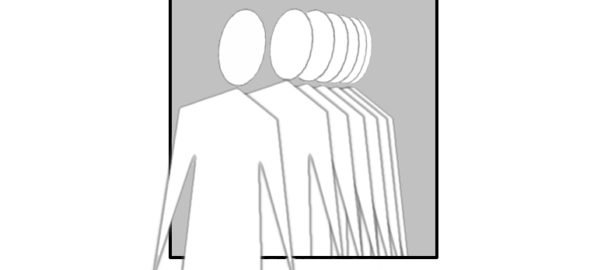
Do you ever lose sleep with worry over some situation that seems out of your control? And even though you realize that worry doesn’t help, you do it anyway? Or perhaps you try blocking it out to get some sleep, but it just won’t go away? And next day, does your sleep deprivation keep you from focusing on what caused all the worry in the first place? I hate when that happens.
Possible Quick Fixes
Well, what can you do about this pattern? Perhaps you can convince your doctor to prescribe sleeping pills. They might knock you out for the night, so that you can be more rested the next day. Or maybe your doctor would be willing to prescribe a tranquilizer. Then the challenging situation wouldn’t bother you so much – you can accept it, rather than struggling over it. Or you might practice mindfulness by living in the “here and now.” Concentrating on your breathing, or on a mantra, might release the grip of fret and worry.
All of these options may serve to relieve your anxiety and worry temporarily. This could allow you to tackle the situation fresh and relaxed when in occurs. Still it may do little to help you actually resolve the dilemma that has you stuck. While you may stop spinning your wheels with useless worry, you still stay stuck. Without a new outlook toward the situation, you are likely to play out the folksy definition of insanity. That is, you keep taking the same approach (or some variation of it), while expecting different results.
Gaining Perspective: Recognizing the Pattern
Whenever we are overcome with worry, it’s usually because someone has found a way to push our buttons, intentionally or not. Some people, particularly in families, are particularly adept at pushing our buttons, perhaps because they helped install them. And often we have pushed their buttons, as well. Frequently this becomes a back-and-forth exercise of escalating tensions, one which I have explored extensively in my posts on vicious cycle patterns in relationships.
The Blame Game
One of the factors which perpetuate the struggle is the debate over who started it. This often is a ruse to gain the higher ground of moral righteousness, rather than an attempt to resolve the issue: this not only inflames tensions, but also distracts from finding a healthy resolution. You don’t need to crawl out of a hole in the same place you fell in. When we recognize that in such dramas there are actually no winners, such concerns become insignificant.
Finding Acceptance through Understanding
A loose translation of one of the proverbs in the Tao Te Ching states that when we understand how a system (e.g., a vicious cycle pattern) works, we can have compassion for each and every participant in that pattern – including ourselves. Achieving this understanding on the level of the heart, and not just the head, can go a long way toward liberating us from the worries spawned by such interaction patterns.
Finding the Stillness in the Eye of the Storm
An analogy implicit in the vicious cycle model is that of the vortex, with tornadoes and hurricanes being destructive examples. These natural phenomena offer a hint for staying calm during chaos: the stillness in the eye of the storm. Yet such storms are usually on the move, requiring our constant attention to avoid getting swept by them. When we apply this image to our relationships, we recognize that others who are caught up in the drama often are more than willing to have us join them in the destructive pattern. Yet the real danger of getting sucked into the drama is often internal: our egos frequently draw us into power struggles and cause us to lose sight of our mutual goals. Here, our compassion for all involved in the struggle can help keep us centered and balanced in the midst of the storm.
Extricating Ourselves from Conflict
Here, I find the analogy of Velcro™ helpful. well. In order for Velcro™ to work effectively, one side has the hooks and the other side has the loops. In order for others to hook us, we have to expose our loops: no loops, no snag. We often overlook this simple insight because we focus on our adversaries’ faults (the hooks). And in turn, they hone in on ours vulnerabilities (the loops). By working on healing ourselves, we can free ourselves from the tangle. While this appears rather simple in the Velcro™ analogy, recognizing our loops is a daunting task, one which I have delved into in my posts on vicious cycle patterns (Vicious Cycle Patterns in Relationships 2.0, and Escaping the Victim Role). I would refer you to these articles to explore the particular guidelines of engagement in more practical terms.
Note that I am not advocating withdrawal and avoidance. Often, that is not possible without sacrificing much that is important to us. When we have a stake in the race, we want to know what our adversaries are up to. As the adage goes, “Keep your friends close, and your enemies closer.” We need to engage, but we need to avoid getting locked into power struggles that threaten to knock us off-balance.
Self-Exploration and Mindfulness
This self-exploration to resolve interpersonal conflicts causing worry is compatible with relaxation strategies. Thus, I am not renouncing the mindfulness training (or the judicious use of psychiatric medications, for that matter). Indeed, we can use meditation to cultivate the clear-headedness needed to achieve insight into our involvement in these conflicts. Many mindfulness exercises offer a temporary reprieve from worry by focusing attention elsewhere. This often is on current sensory experiences, such as music, nature, or our own breathing. Yet for these exercises to help alleviate conflict, they must be strategic retreats, not avoidance.
Making Peace with Uncertainty
We can expand our view of mindfulness practices to include attention to some unsettling feelings. These might include frustrations and resentments over past interactions or apprehensions about the future – in short, worry. We might observe our minds calling up past events or conjuring up fantasies of future interactions. Yet we resist the pulls that threaten to engulf us in these scenarios. We can note our emotional reactions to these events, real or imagined, whether that might be anger, resentment, guilt, shame, embarrassment, envy, worry, disgust, fear, loathing, etc. Again, we observe our feelings, preferably with compassion for ourselves, yet without allowing ourselves to be consumed by these feelings. We might also step back to recognize how vicious cycles have engulfed others, Furthermore, we realize that they, too, are suffering, regardless of their roles they have assumed.
Letting Go of Unrealistic Expectations
By undertaking these steps, we might transform our worry into an acceptance for how things are. This contrasts with our earlier protestation over how things are not as they are meant to be. When we recognize that reconciliation is unavailable, we may need to grieve. Then, we may realize that it is time to let go of the relationship.
Developing a Plan and a Strategy
Or the acceptance might be more hopeful, if we can envision ourselves as taking a different approach, one that might improve prospects for a constructive resolution, or at least might allow our disentanglement from the vicious cycle pattern.
Rehearsal: Developing Skills
In the latter case, we might go beyond the mindfulness mindset to engage in rehearsal of how we might respond to our anticipated challenges more effectively. We undertake this step, realizing that we lack some interpersonal skills for relating to others. By performing a self-evaluation, we can identify areas requiring further work. These areas may include asserting our positions, asking for what we want and need, setting limits with others, using leverage appropriately, active listening to others’ perspectives, bargaining a compromise, and collaborating. At this point, we can practice and develop these skills.
From Worry to Planning
Here, it may be better to rehearse these positions and develop a strategy, rather than winging it and learning strictly by trial and error. Through these steps, we have the potential to transform debilitating worry into constructive contingency planning, possibly leading to conflict resolution on the practical plane and reconciliation on the deeper personal level. Hopefully, we don’t have to figure this out at 3 AM.


